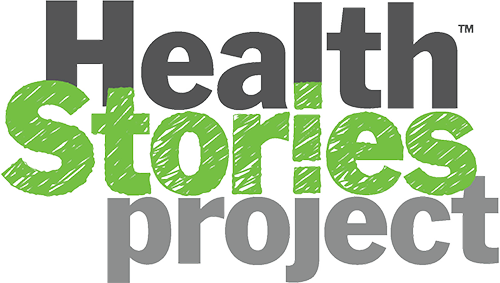It all started with a simple itch.
Jason Greenspan was watching TV, thinking about his upcoming senior prom, when he scratched himself and felt a small, hard lump in one of his testicles.
“I had a gut feeling it was something,” says Greenspan, who was a healthy 18-year-old at the time and just a couple of weeks away from graduation. “I checked both and one was harder. I knew something was wrong.”


He told his mom, who immediately made an appointment with her son’s pediatrician. The doctor conducted a testicular exam and had a strong hunch what was going on. “A few days later he said the words I never thought I’d hear,” recalls Greenspan. “‘You have cancer.’ My world stopped. The only thing I could think of was what my future would look like.”
What Greenspan didn’t know at the time is that testicular cancer is the most common type of cancer affecting males between the ages of 15 and 44. About half of all cases are in men between the ages of 20 and 34. It’s also 99% curable if it’s detected early enough.
Greenspan attended his prom and graduation before going in for surgery to remove the cancerous mass in his testicle. When he found out he still had cancer following the surgical procedure, he deferred attending college and endured three bouts of chemotherapy over a miserable few months. “But it was better than dying,” he says matter-of-factly.



Now 23 and nearly five years cancer free, Greenspan has made it his mission to spread awareness about testicular cancer, which can occur as early as infancy but most commonly begins to appear around age 15.
He believes it’s an important conversation for pediatricians to have with their male patients. “When I was little, they’d do yearly testicular exams but I never really knew what they were doing,” says Greenspan. “It was just uncomfortable.”
He’d also like to see education about testicular cancer in schools starting as soon as middle school. “The earlier the better,” he says.



“Everyone talks about breasts and breast cancer, but testicular cancer is really uncomfortable for guys to talk about. There’s no reason to be embarrassed about it. Everybody has the same parts.”
Testicular cancer isn’t a particularly common form of cancer—a man’s lifetime risk is one in 263 (by comparison, about one in eight women will develop breast cancer). But early detection is critical, and the best way to catch it early is to do monthly self-examinations.
One excellent resource is the Testicular Cancer Awareness Foundation. The non-profit’s website includes an illustrated how-to guide for self-exams, as well as a bounty of helpful information about everything from important questions to ask at diagnosis to potential side effects from treatment.
Greenspan, a Washington D.C. native, serves as a board member and ambassador for the TCAF Foundation, attending events and speaking engagements.
He’s been featured in newspaper and magazine articles, as well as TV and radio segments. “I’m trying to share my story as much as possible,” says the tough-as-nails survivor.
Just a week after his diagnosis, he launched a fundraiser called Stamp Out Cancer Now!, donating the money he raised to testicular cancer causes. He’s since done PSAs and hosted information tables at places like the Vans Warped Tour and an Orioles baseball game.



Greenspan, who graduates from college in December, already has put his marketing studies to good use as a spokesperson. This summer, he’s doing an internship with a testicular cancer specialist, also a TCAF board member, at a Baltimore hospital.
With his winning personality and enthusiasm, he’s sure to reach a lot of young men with his simple message. “Don’t be embarrassed to talk about your testicles,” he says. “And if you feel something wrong, tell a doctor.”

